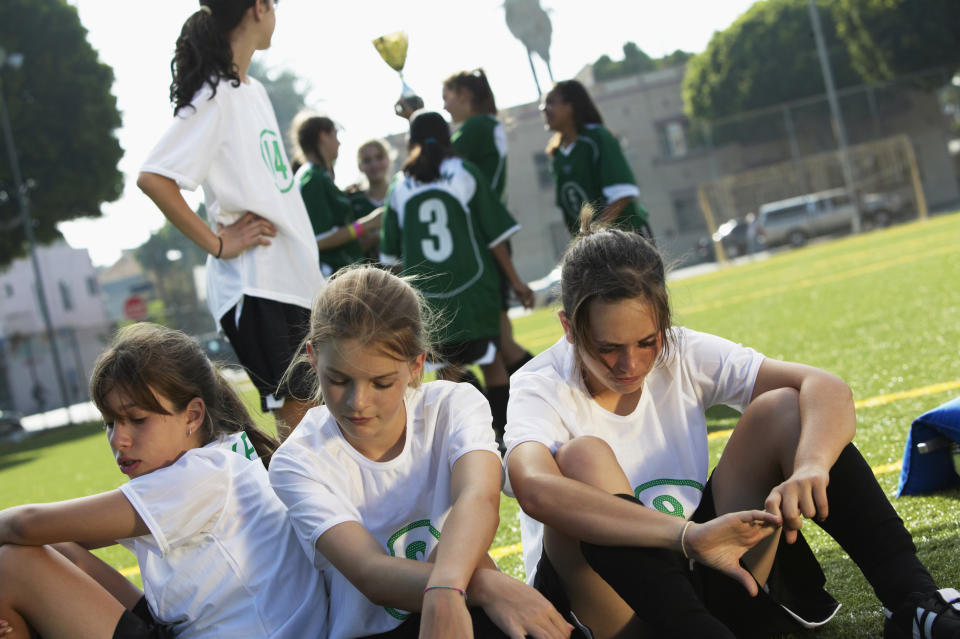Why embracing failure is the most important learning tool for girls

Failure is all around us and failing for the thousandth time can be just as devastating as failing for the first. As we’re constantly reminded, failure is also key to our success: we learn from our failures and hopefully change our approach to avoid making the same mistakes twice, and we realise that we’re not alone when we learn about the failures of others (in fact, research has shown that learning about the failures of great visionaries can be helpful for motivating kids – it can even improve their academic performance).
Of course, while we can learn and improve after failure, it doesn’t always happen (some research has shown that failure can lead to even more mistakes).
Good, bad, or something in between, there’s so much that failure can teach us that in 2018, Columbia University Teachers College launched EPIC, the Education for Persistence and Innovation Centre, for the precise purpose of testing theories about failure and using it as a catalyst for learning, growth and success.
Not everyone responds to failure in the same way: girls tend to take failure harder than boys, feeling that they failed because they were less than (boys typically feel that failure occurred as the result of circumstances beyond their control).
READ MORE: What does it take to actually become an astronaut?
Unfortunately, today’s style of helicopter and even “lawnmower” parenting (where parents mow down any obstacles in their child’s path), can be extremely detrimental to children, especially when it comes to teaching girls how to deal with failure and disappointment. Parents may think they’re cushioning their children and protecting them emotionally, but doing everything for our children only breeds unrealistic expectations of how the world works, so when failure does eventually hit (and, as we all know, it always does hit), it’s even more bruising for the child who never learned how to deal with it.
Parents can help their girls deal with failure in lots of ways. First off, let them experience failure: encourage them to try out for teams, to apply to writing or art competitions, to audition for the school play, and teach them that learning to cope with rejection and failure is a skill like any other.
You can help your kids deal with failure by revisiting it yourself: if you openly discuss your own failures with them, and how those experiences shaped you, it will help them understand that failure is sometimes inevitable, but it can also be a starting point for something new, rather than an endpoint.
READ MORE: What dads can do to help build girls’ confidence

It’s also important that we reframe the conversation on failure so that children – girls especially – don’t see success as a result of traits they don’t possess and failure as something really bad. Research has argued that it’s crucial to praise effort over ability, especially for girls: it works as a great motivator, and also helps girls bypass “dream gap” thinking, where they start developing limiting self-beliefs from a young age that make them feel they aren’t as well-suited to certain subjects or careers as their male counterparts.
Not every child is going to pick up a new concept in school or a new sport from the get-go – and there’s absolutely nothing wrong with that. This is why encouraging qualities like perseverance, hard work and resilience is key – and we need to be role models of these behaviours for our daughters to follow.
Famous person role-modelling can also help: share stories of the Dysons and Edisons of this world, who have been open about the many thousands of attempts it took them before their inventions were viable. And we all know how many times Harry Potter was rejected (12!) before J.K. Rowling managed to find a publisher who would take it on. As she has said: “Failure is so important. We speak about success all the time. It’s the ability to resist failure or use failure that often leads to greater success. I’ve met people who don't want to try for fear of failing.”

Author Elizabeth Gilbert, of Eat, Pray, Love fame (among other bestsellers) is one high-profile person reframing the narrative on failure. Her TED Talk on failure after success is a must-watch, and she speaks candidly about how even when faced with daily rejection, she would push on, deciding that she wasn’t going to quit, but would go “home” and start fresh the next day – home for her being writing, that thing that she could dedicate her energies to with singular devotion.
Another voice all parents should be listening to is author and journalist Elizabeth Day, who hosts the How To Fail podcast and has written the book, How to Fail: Everything I’ve Learned from Things Going Wrong. The podcast features celebrity guests, from Lily Allen to Alastair Campbell, who openly discuss three of their biggest failures in life. Day encourages listeners to see failure as a learning tool and something that we can embrace as part of our identities, instead of trying to escape from.
“You can look at people and think they have everything. But to hear them say they’ve failed is an incredibly democratising thing. Opening up to that shows vulnerability, and connecting to what makes us most vulnerable is what makes us human,” she told The Independent.
Which reminds us – make sure they take whatever they see on social media with a grain of salt. No matter who you are, life isn’t always muted pastel tones and pristine beaches.


